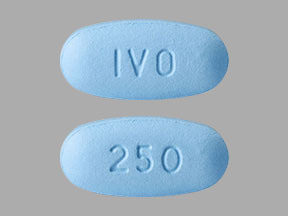Tibsovo and Alcohol/Food Interactions
There are 2 alcohol/food/lifestyle interactions with Tibsovo (ivosidenib).
Nicotine Ivosidenib
Moderate Drug Interaction
Ivosidenib may decrease the blood levels and effects of nicotine. Talk to your doctor if you have any questions or concerns. Your doctor may be able to prescribe alternatives that do not interact, or you may need a dose adjustment or more frequent monitoring to safely use both medications. Contact your doctor if your condition changes. It is important to tell your doctor about all other medications you use, including vitamins and herbs. Do not stop using any medications without first talking to your doctor.
Ivosidenib Food/Lifestyle
Major Food Interaction
Do not consume grapefruit or grapefruit juice during treatment with ivosidenib unless directed otherwise by your doctor. Grapefruit juice can increase the blood levels of ivosidenib. This may increase the risk of an irregular heart rhythm that may be serious and potentially life-threatening. You may be more susceptible if you have a heart condition called congenital long QT syndrome, other cardiac diseases, conduction abnormalities, or electrolyte disturbances (for example, magnesium or potassium loss due to severe or prolonged diarrhea or vomiting). Talk to your doctor if you have any questions or concerns. You may take ivosidenib with or without food, but avoid taking it with a high-fat meal, as this can also increase blood levels of the medication. An example of a high-fat meal includes 2 eggs fried in butter, 2 strips of bacon, 2 slices of white bread with butter, 1 croissant with 1 slice of cheese, and 8 ounces of whole milk (approximately 1,000 calories and 58 grams of fat). You should seek immediate medical attention if you develop sudden dizziness, lightheadedness, fainting, shortness of breath, or heart palpitations during treatment. It is important to tell your doctor about all other medications you use, including vitamins and herbs. Do not stop using any medications without first talking to your doctor.
Switch to professional interaction data
Tibsovo drug interactions
There are 584 drug interactions with Tibsovo (ivosidenib).
Tibsovo disease interactions
There are 2 disease interactions with Tibsovo (ivosidenib) which include:
More about Tibsovo (ivosidenib)
- Tibsovo consumer information
- Check interactions
- Compare alternatives
- Pricing & coupons
- Drug images
- Side effects
- Dosage information
- During pregnancy
- FDA approval history
- Drug class: miscellaneous antineoplastics
- Breastfeeding
- En español
Related treatment guides
Drug Interaction Classification
| Highly clinically significant. Avoid combinations; the risk of the interaction outweighs the benefit. | |
| Moderately clinically significant. Usually avoid combinations; use it only under special circumstances. | |
| Minimally clinically significant. Minimize risk; assess risk and consider an alternative drug, take steps to circumvent the interaction risk and/or institute a monitoring plan. | |
| No interaction information available. |
See also:
Further information
Always consult your healthcare provider to ensure the information displayed on this page applies to your personal circumstances.


